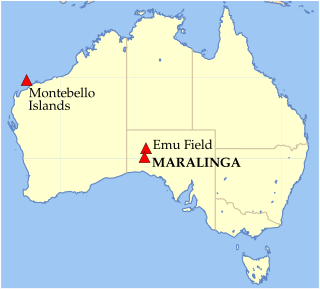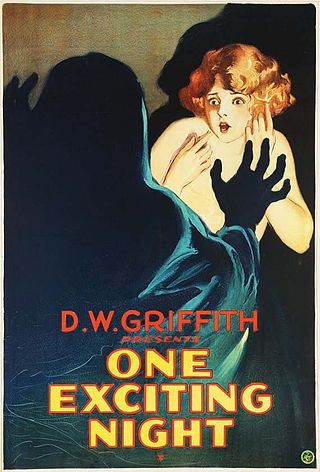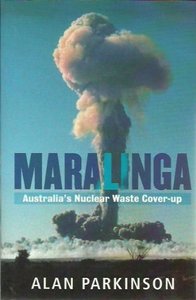Synopsis
From 1957 to 1978, scientists secretly removed bone samples from over 21,000 dead Australians as they searched for evidence of the deadly poison, Strontium 90 – a by-product of nuclear testing. Silent Storm reveals the story behind this astonishing case of officially sanctioned 'body-snatching'. Set against a backdrop of the Cold War, the saga follows celebrated scientist, Hedley Marston, as he attempts to blow the whistle on radioactive contamination and challenge official claims that British atomic tests posed no threat to the Australian people. Marston's findings are not only disputed, he is targeted as 'a scientist of counter-espionage interest'.
The film is narrated by Paula Arundell.

Dr. Strangelove or: How I Learned to Stop Worrying and Love the Bomb is a 1964 political satire black comedy film co-written, produced, and directed by Stanley Kubrick and starring Peter Sellers in three roles, including the title character. The film, financed and released by Columbia Pictures, was a co-production between the United States and the United Kingdom.

Duck and Cover is a 1952 American civil defense animated and live action social guidance film that is often mischaracterized as propaganda. It has similar themes to the more adult-oriented civil defense training films. It was widely distributed to United States schoolchildren in the 1950s, and teaches students what to do in the event of a nuclear explosion.

Maralinga is a desert area around 3,300 square kilometres (1,300 sq mi) large located in the west of South Australia, within the Great Victoria Desert. The area is best known for being the location of several British nuclear tests in the 1950s.

Operation Hurricane was the first test of a British atomic device. A plutonium implosion device was detonated on 3 October 1952 in Main Bay, Trimouille Island, in the Montebello Islands in Western Australia. With the success of Operation Hurricane, the United Kingdom became the third nuclear power, after the United States and the Soviet Union.

Between 1956 and 1963, the United Kingdom conducted seven nuclear tests at the Maralinga site in South Australia, part of the Woomera Prohibited Area about 800 kilometres (500 mi) north west of Adelaide. Two major test series were conducted: Operation Buffalo in 1956 and Operation Antler the following year. Approximate weapon yields ranged from 1 to 27 kilotons of TNT. The Maralinga site was also used for minor trials, tests of nuclear weapons components not involving nuclear explosions. The tests codenamed "Kittens" were trials of neutron initiators; "Rats" and "Tims" measured how the fissile core of a nuclear weapon was compressed by the high explosive shock wave; and "Vixens" investigated the effects of fire or non-nuclear explosions on atomic weapons. The minor trials, numbering around 550, ultimately generated far more contamination than the major tests.
The McClelland Royal Commission or Royal Commission into British nuclear tests in Australia was an inquiry by the Australian government in 1984–1985 to investigate the conduct of the British in its use, with the then Australian government's permission, of Australian territory and soldiers for testing nuclear weapons. It was chaired by Jim McClelland.
Paula Arundell is an Australian actress and singer.
Peter Butt is an Australian film producer, director and writer. He produces investigative documentaries for television about 20th century global and Australian history. Most of his films have been in conjunction with Film Australia, the Australian Broadcasting Corporation and SBS.

Hedley Ralph Marston FRS FAA was an Australian biochemist who worked for the Commonwealth Scientific and Industrial Research Organisation (CSIRO).

One Exciting Night is a 1922 American Gothic silent mystery film directed by D. W. Griffith.

Maralinga: Australia's Nuclear Waste Cover-up is a book by Alan Parkinson about the clean-up of the British atomic bomb test site at Maralinga in South Australia, published in 2007.

The Andromeda Strain is a 2008 science fiction miniseries, based on the 1969 novel of the same name written by Michael Crichton about a team of scientists who investigate a deadly disease of extraterrestrial origin. The miniseries is a "reimagining" of the original novel rather than an adaptation. In addition to updating the setting to the early 21st century, the miniseries makes a great many plot and character changes from its source.

Radio Bikini is a 1988 American documentary film directed by Robert Stone. It was nominated for an Academy Award in 1988 for Best Documentary Feature. It was later aired on the PBS series The American Experience.

The United Kingdom conducted 12 major nuclear weapons tests in Australia between 1952 and 1957. These explosions occurred at the Montebello Islands, Emu Field and Maralinga.
A Question of Trust is a 1920 British silent adventure film directed by Maurice Elvey and starring Madge Stuart, Harvey Braban and Teddy Arundell. It was based on a short story by Ethel M. Dell.

The Four Just Men is a 1921 British silent crime film directed by George Ridgwell and starring Cecil Humphreys, Teddy Arundell and Charles Croker-King. It was based on the 1905 novel The Four Just Men by Edgar Wallace. The film still survives unlike many other silent films of the era which are now considered lost. Its plot concerns four vigilantes who seek revenge for the public against criminals.

The Flight That Disappeared is a 1961 American science fiction film, produced by Robert E. Kent, directed by Reginald Le Borg, that stars Craig Hill, Paula Raymond, and Dayton Lummis. The film was released by United Artists. The film's storyline deals with an alien abduction. When his flight disappears, a rocket scientist finds himself on trial in the future for his part in designing a weapon that has destroyed all life on Earth.

Avon Hudson is a South Australian RAAF ex-serviceman, nuclear weapons testing whistle-blower and co-author of the 2005 book Beyond Belief which he wrote with academic and historian, Roger Cross. He has appeared in several documentary films about nuclear weapons testing in Australia.
Hedley is a masculine given name which may refer to:
This page is based on this
Wikipedia article Text is available under the
CC BY-SA 4.0 license; additional terms may apply.
Images, videos and audio are available under their respective licenses.













